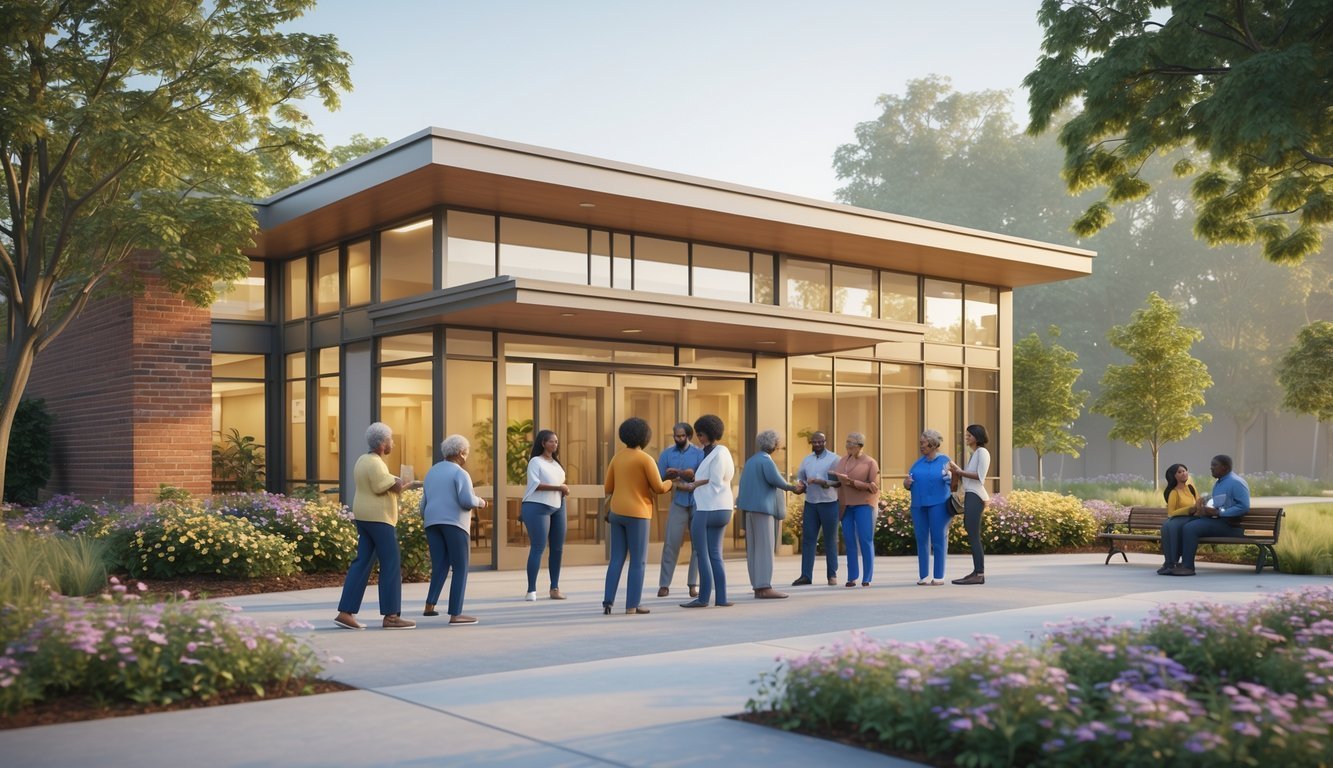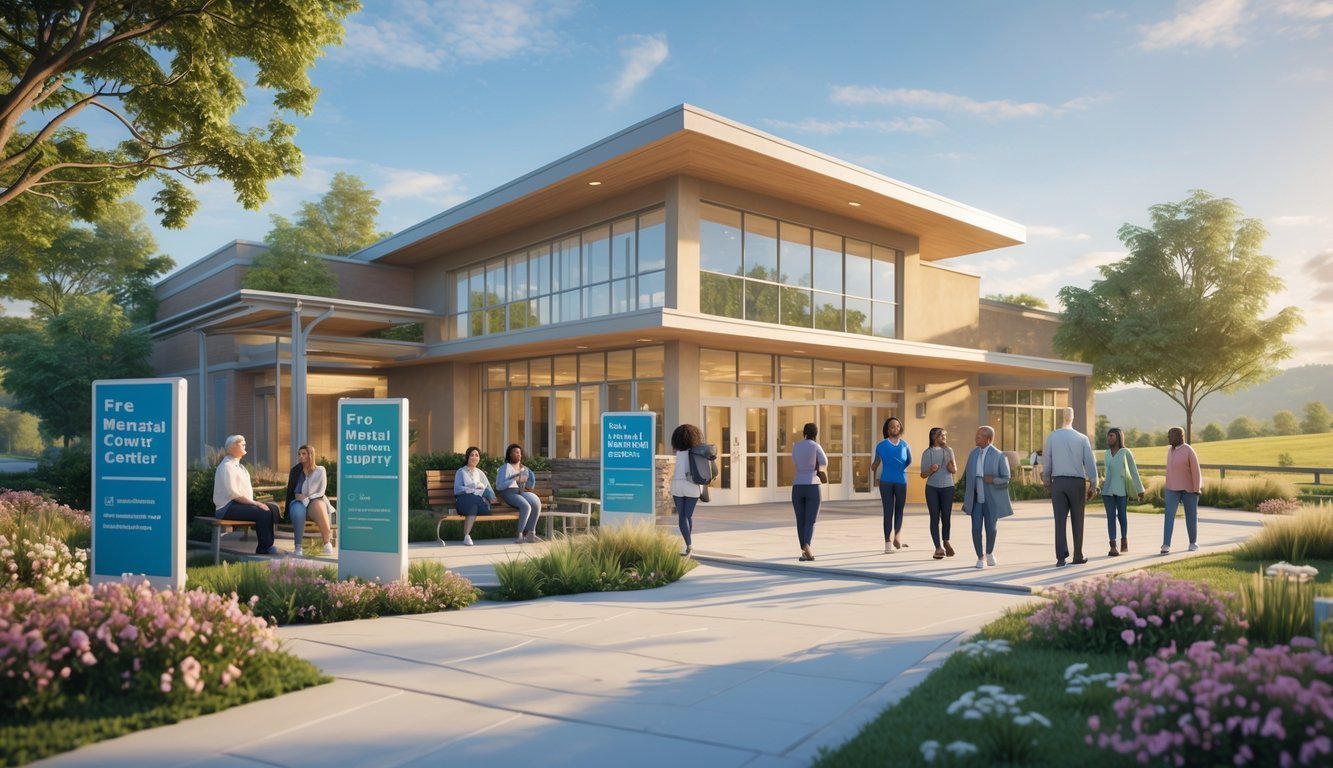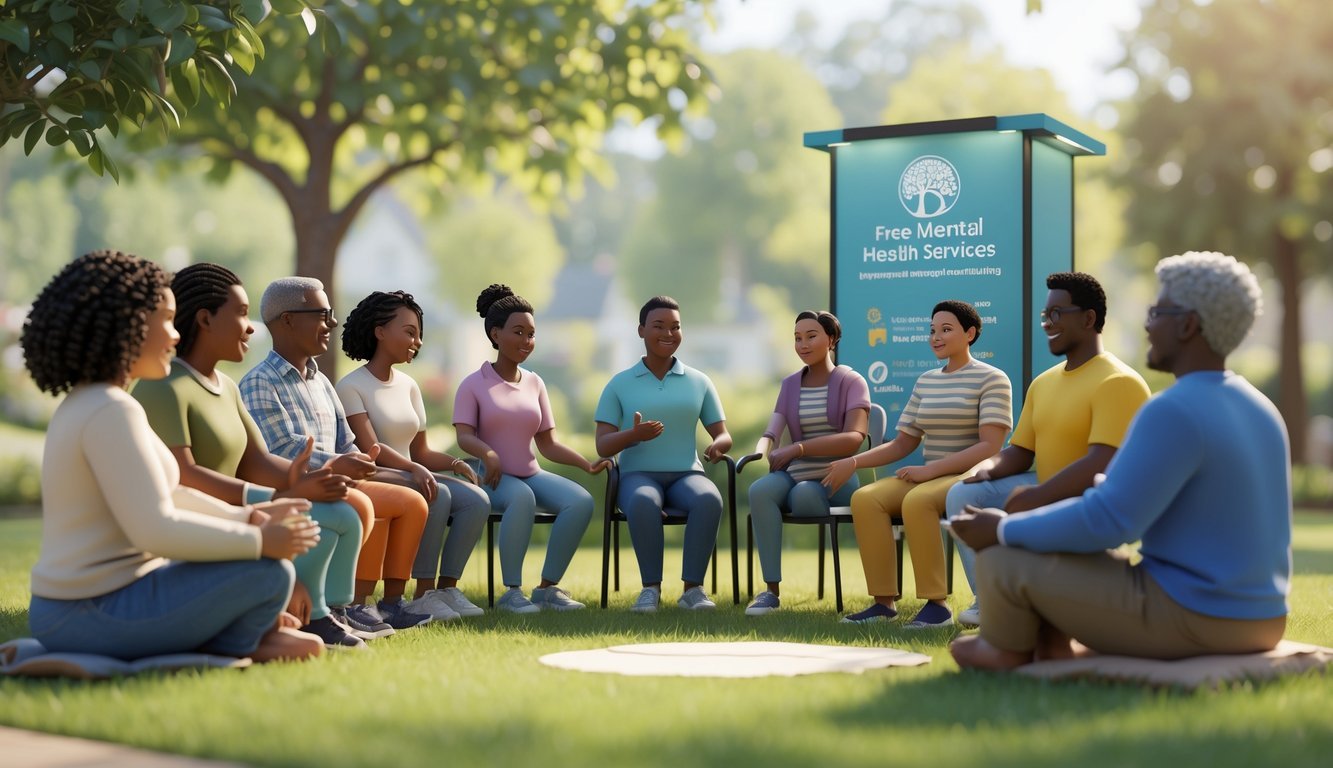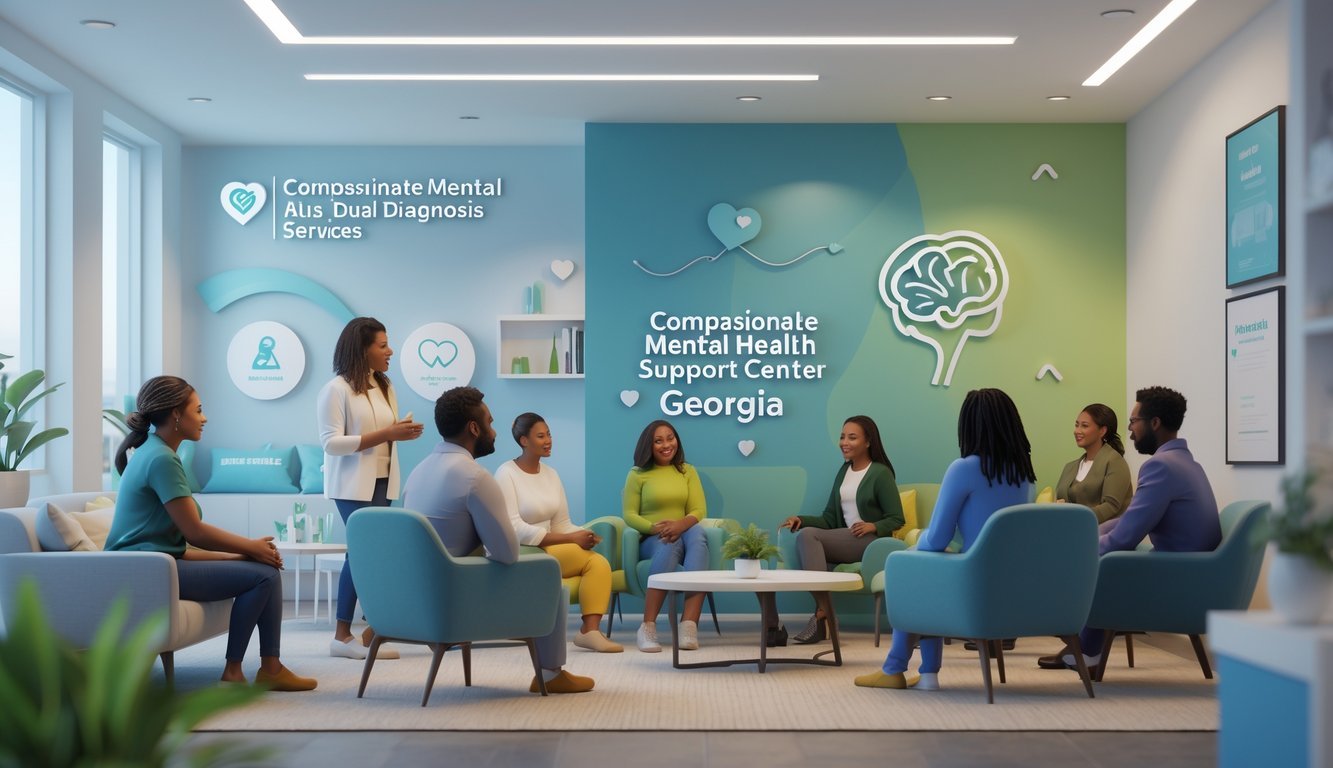PsychNewsDaily Publishers
100 Summit Drive
Burlington, MA, 01803
Telephone: (320) 349-2484
PsychNewsDaily Publishers
100 Summit Drive
Burlington, MA, 01803
Telephone: (320) 349-2484
Georgia offers a range of mental health services, including crisis hotlines, community mental health centers, and peer support programs, accessible to residents regardless of income.

Getting mental health support in Georgia doesn’t have to drain your wallet. The state actually has a bunch of free counseling services, crisis intervention programs, and community mental health centers that make quality care possible without stressing about money.
You can get free mental health services through Georgia’s community mental health centers, university counseling programs, and state-funded crisis lines that run 24/7. These programs cover everything from one-on-one therapy to group counseling, and they even offer specialized help for depression, anxiety, and trauma.
Maybe you’re a college student searching for campus support. Or maybe you just want local, community-based care. Either way, knowing what’s out there can make it easier to find help that actually fits your needs.
From peer support groups to substance abuse programs, these services really try to meet you where you’re at. They want to help you feel better, plain and simple.

Georgia has a handful of important mental health services that don’t cost anything for residents. You’ll find immediate crisis support, mobile teams who come to you, walk-in treatment, and ongoing care in the community.
The Georgia Crisis and Access Line is the main mental health crisis hotline in the state. Just call 1-800-715-4225 any time, day or night.
GCAL connects you straight to the 988 Suicide and Crisis Lifeline network. Real people answer and offer support during emergencies.
They don’t just handle crises. GCAL staff can help you find local mental health providers and connect you to longer-term treatment.
Key GCAL Services:
Mobile crisis teams actually come to you when you need help. They respond to situations at home, school, or anywhere in the community.
These teams include licensed mental health professionals. They show up, assess what’s going on, help calm things down, and make a plan for safety.
What Mobile Crisis Teams Provide:
Usually, they get to you within 30 minutes to 2 hours. Most Georgia counties have these teams through regional partnerships.
You can reach mobile crisis services by calling GCAL or your local community mental health center.
Walk-in crisis centers offer immediate mental health support, no appointment needed. These places stay open during extended hours for people dealing with acute symptoms.
Staff at these centers do assessments and help stabilize you in the short term. They also create treatment plans to keep you moving forward.
Services Available at Crisis Centers:
Most centers welcome everyone, no matter your insurance status or ability to pay. Some are open 24 hours, others stick to daytime and evening.
Georgia’s network of 25 regional community mental health providers covers the whole state. They offer a wide range of services, and a lot of it is free if you qualify based on income.
You can get both individual and group therapy at these centers. Many people pay nothing at all, depending on their situation.
Available Services Include:
Each center serves certain counties. You can find your local provider in the Georgia’s Division of Family & Children Services resource directory.
They also run special programs for kids, adults, and older adults who have unique mental health needs.

Georgia has peer-led mental health programs that connect you with others who’ve been through similar stuff. These groups offer support, crisis help, and wellness activities all over the state.
Certified peer specialists are people who’ve faced their own mental health challenges and received training to help others. You’ll find them working in hospitals, community centers, and treatment facilities across Georgia.
You can connect with peer specialists through your local community mental health center. They’ll assist with recovery planning, setting goals, and finding resources.
Georgia runs several warmlines staffed by peer specialists:
Warmlines aren’t for emergencies. They’re for when you just need someone to talk to who gets it.
Peer specialists often lead support groups in the community. These groups meet weekly or monthly and talk about things like managing symptoms, building relationships, and finding work.
The Georgia Mental Health Consumer Network brings together people with mental health conditions from across the state. They run peer support programs and push for mental health rights.
They also train folks who want to become peer support specialists. Training covers listening, recovery basics, and sharing your story.
Services include:
You can join online or show up at a local chapter meeting. They have chapters in cities like Atlanta, Augusta, and Columbus.
Family and friends of people with mental health conditions can find resources here too.
Peer-run wellness centers operate in several Georgia towns and cities. People with mental health experience run these places and offer daily activities and support.
Most centers offer free stuff like art therapy, computer access, and social activities. No referral or insurance is needed.
Common wellness center activities:
Most centers open during the day, Monday through Friday. Some have evening and weekend hours too.
You’ll find wellness centers in Atlanta, Savannah, Macon, and other spots. Ask your local mental health authority for one near you.

Georgia has support if you’re dealing with substance abuse or dual diagnosis conditions. These programs help you work on addiction and mental health at the same time, all in one place.
The Georgia Council on Substance Abuse organizes addiction treatment and prevention services statewide. You can tap into their network of certified treatment providers in all 159 counties.
Key Services Include:
The council partners with local community boards and private centers. You can get help, even if you don’t have insurance or cash.
A lot of programs use integrated dual disorder treatment, so you get care for both addiction and mental health from the same team.
Several hotlines run 24/7 and offer immediate help if you’re struggling with substance abuse. These are free, and you’ll talk to trained counselors who can connect you to local resources.
Georgia Crisis & Access Line: 1-800-715-4225
SAMHSA National Helpline: 1-800-662-4357
Georgia Poison Center: 1-800-222-1222
You can also text HOME to 741741 to reach the Crisis Text Line. Someone will answer and help you by text, which is sometimes just easier.
Getting free mental health services in Georgia means meeting certain requirements and following a few steps. Some groups, like youth and veterans, have their own special programs.
Most free mental health services ask for proof of income and that you live in Georgia. Bring pay stubs, tax returns, or benefit statements from the past month.
Income Requirements:
You can apply at your local community mental health center or online through Georgia Gateway. Bring a valid ID, your Social Security card, and proof of income to your appointment.
Call GCAL at 1-800-715-4225 for immediate crisis help. They’ll connect you to local resources and help you get started with ongoing services.
Mobile crisis teams show up in your community when there’s a mental health emergency. They’ll evaluate you on the spot and help you get follow-up care without upfront costs.
Peer support services match you with trained people who’ve been through similar challenges. These programs are usually free and don’t ask for a lot of paperwork.
Youth ages 12-27 can check out the Advancing Care toolkit from Georgia’s Department of Behavioral Health.
This toolkit helps young people move between different levels of care as they grow up.
Age-Based Programs:
Ages 12-13: Back-Seat Driver program
Ages 14-15: Passenger program
Ages 16-17: Permit Holder program
Ages 18-21: Licensed Driver program
Ages 22-27: Seasoned Driver program
If you’re a college student at Georgia Tech, you can use Uwill for four free virtual counseling sessions.
You don’t need a referral for these.
Veterans get priority access at VA medical centers and community-based outpatient clinics.
You can also join veteran-specific peer support groups for free.
LGBTQ+ individuals can find specialized counseling and support groups at many community mental health centers.
These programs focus on unique challenges and offer care that really understands your needs.